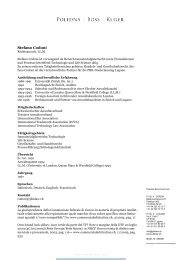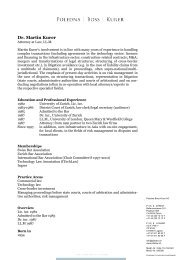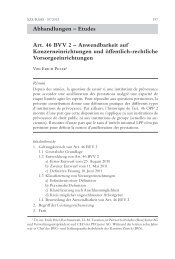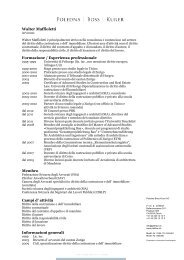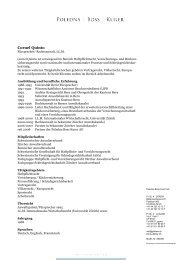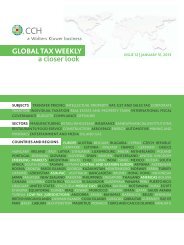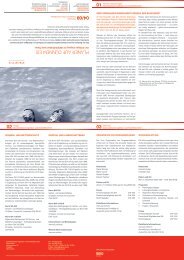721.8 kB - Poledna | Boss | Kurer
721.8 kB - Poledna | Boss | Kurer
721.8 kB - Poledna | Boss | Kurer
- No tags were found...
Create successful ePaper yourself
Turn your PDF publications into a flip-book with our unique Google optimized e-Paper software.
climb-down over controversial proposals for a financialtransactions tax (FTT).The European Commission's plans for a 0.01 percenttax on derivatives and a 0.1 percent rate onother financial instruments are intended to enterinto force from January, 2014. At the start of thisyear, the European Council of Economic and FinancialAffairs (Ecofin) authorized Belgium, Germany,Estonia, Greece, Spain, France, Italy, Austria,Portugal, Slovenia, and Slovakia to progress with anFTT along the lines of the "enhanced cooperation"procedure, which enables those states wishing towork more closely together to do so.According to Reuters, which claims to have spokento Brussels officials linked with the project, the levyon trading bonds and shares could fall from theoriginally outlined 0.1 percent to just 0.01 percent.The result would be a drop in the revenue generatedfrom EUR35bn to just EUR3.5bn.The timetable for implementation also looks set tochange. It is apparently likely that only shares willbe hit by the tax from next year, while bonds willcome under the regime from 2015, and derivativesat an unspecified later date.As one official put it, "The whole thing will have tobe changed quite a lot … It is not going to survivein its current form."Sandy Bhogal, Head of Tax at law firm MayerBrown International, believes it should come asno surprise that the EU has had to "scale back" itsproposals. They have come under fire from sourcesas far and wide as the outgoing head of the Bankof England, Mervyn King, the International CapitalMarkets Association, and the Global FinancialMarkets Association. Common themes of apprehensioninclude the likely extraterritorial impact,the increased costs for businesses and governments,and the potential adverse effects for the globaleconomy. Earlier this week, European Central bankexecutive board member Benoît Cœuré told the FinancialTimes of his desire to "ensure that the taxhas no negative impact on financial stability."As Bhogal explains, "The original proposals raisedlots of questions and concerns about the impact ofthe FTT on the cost of sovereign and corporate debt,liquidity in the EU and beyond and the potential relocationand displacement effect in the financial markets.In its proposed form, the FTT could also beviewed as being inconsistent with regulatory changeslike EMIR and the general direction of travel of theEU, particularly at a time when there is a need to encourageEU economic growth and competitiveness."A number of issues related to enforcement and thepractical problems associated with collecting FTTrevenue, also remain unsolved, Bhogal added. Withthis in mind, "the scaled back plans and step-bystepapproach may be more sensible."A spokeswoman for EU Tax Commissioner AlgirdasŠemeta commented: "Depending on the speedof progress from here, it is still feasible that thecommon FTT could be implemented in 2014, althoughJanuary 2014 is looking less likely."68



